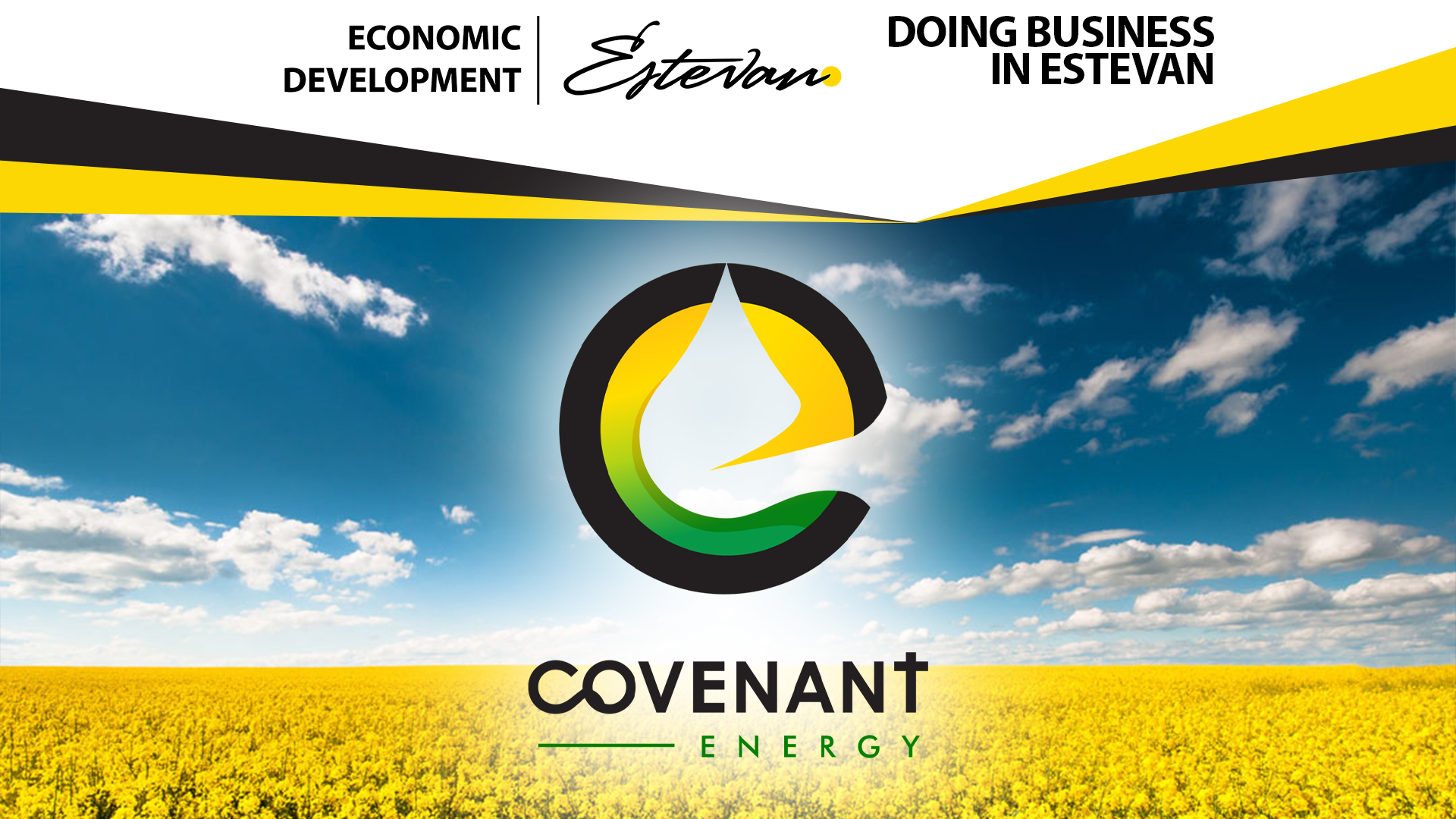
24 Mar Estevan Economic Development to Work with Covenant Energy on a Renewable Diesel Facility in Southeast Saskatchewan
The City of Estevan is looking forward to a new partnership with Covenant Energy, a Saskatchewan-based renewable fuel innovator. Covenant Energy plans to develop the first stand-alone Hydrogenation-Derived Renewable Diesel (HDRD) production plant in Canada, which will transform prairie-grown canola oil into a premium diesel product.
In response to the draft Clean Fuel Regulations, and Government of Canada commitments to attain net-zero emissions, Covenant Energy is confirming details of its proposed renewable diesel facility. The proposed renewable fuel processing plant planned to produce approximately 6,500 barrels a day for a total of 300-325 million liters per year of production capacity. The finished fuels to be produced at the facility include renewable diesel, arctic-grade renewable diesel, and sustainable aviation fuel.
“Covenant Energy is eager to be a part of attaining Canada’s environmental sustainability and net-zero commitments in a way that will stimulate the Saskatchewan economy.†Explained Josh Gustafson, President and CEO, Covenant Energy. “Personally, being deeply rooted in the Ag industry as a member of a fifth generation Saskatchewan farming family with over 13,000 acres of production, I see the positive future impact and I am excited about bringing value-added opportunities.â€
City Manager, Jeff Ward says it’s exciting to see diverse business opportunities coming to the Energy City. “Our Economic Development Board has been working hard to foster an environment that encourages new and unique businesses to open in Estevan. Projects like this will play an integral part of our economy’s success in the future.â€
While the ambition is to use predominantly Canadian canola oil as the feedstock and ship renewable fuels throughout Canada and Canada’s northern communities, Covenant’s proposed location will be situated on a Class 1 railway, giving the ultimate flexibility to access feedstock from across Canada and the U.S., as well as providing the potential to sell product into the U.S. market.
Provided the project receives all the necessary approvals, it is slated to start production in the second half of 2023.

